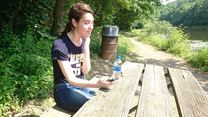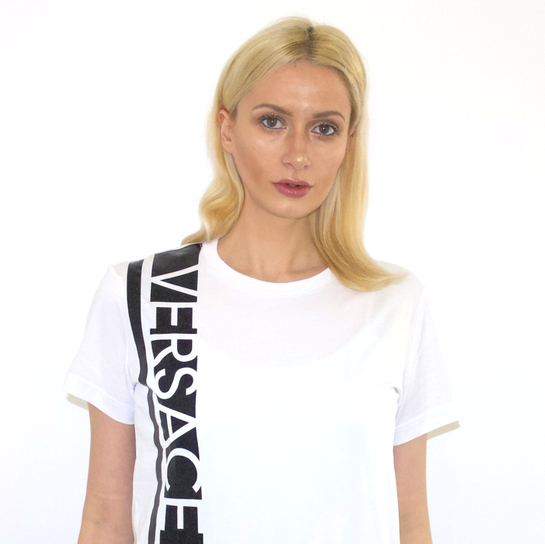|
8/31/2018 0 Comments Interview with Susanne Lettner: How to Encourage the Next Generation of Scientists and Engineers
An updated version of this interview is available here https://bit.ly/3l6QRqB
By Amy Massack
Susanne Lettner is the STEM ambassador for the Berlin based initiative MINT Zukunft schaffen (MINT is the German translation for STEM). She also serves as an ambassador for the Vienna based initiative Young Science, which is a Center for the Cooperation of Science and Schools. We talked with her about STEM education in Germany.
Amy Massack: Tell me about yourself - what inspired you to get involved in the sciences, and drew you to the field you are currently working in? Susanne Lettner: I earned my Bachelor’s Degree in Journalism and Public Relations and a Master’s Degree in Dance Studies from The Free University of Berlin. Currently, I’m a marketing specialist with a focus on corporate communications at a mechanical engineering company. In my professional career, I write about topics such as e-mobility, autonomous driving, digitization or Industry 4.0. STEM fields help us to shape our future through technology. For that we need smart, creative and bright people working on solutions. People in STEM are inventors that work to make our planet a better place for everyone. AM: People often see a huge divide between the arts and STEM. There seems to be a fallacy that researchers are not "poets and thinkers” and that STEM tasks are not for creative minds. You have a previous background in the creative arts (such as dance). How can we achieve a rethink from your point of view? SL: STEM opens a world of opportunities for careers. There are so many paths you can follow within STEM and numerous ways in which you can have a real impact on the world. In my case, as a marketing specialist at a mechanical engineering company, I enjoy the potential opportunity to work together with engineers on future topics. While engineers create amazing innovations, it’s the role of marketing to advertise them to consumers. In order to create a positive image of the STEM field, numerous digital media outlets should be utilized. Media coverage can show that a STEM job is creative and diversified. This allows reporting on outstanding, innovative projects or ideas of people who authentically present their professional activity. To ensure that women in the field of STEM are accurately represented, negative stereotypes must be eliminated and authentic information (about women as well as their careers) should be utilized. AM: What does it mean to be a STEM Ambassador? What is your favorite part of the job? SL: STEM ambassadors should bring a fresh perspective to STEM subjects. We provide career talks, as well as support for exhibitions, events or enrichment days. We also provide mentoring and other aid to STEM projects and activities. We do hands-on practical work to engage students with STEM subjects. Being a STEM Ambassador gives me the opportunity to encourage the next generation of scientists and engineers. I enjoy inspiring students with science, technology, engineering and math disciplines, and to further assist them in gaining a better understanding of STEM fields. AM: Has there been a defining moment for you in your work? SL: As a STEM Ambassador, I have planned and organized different STEM events for students. Age-related STEM events are a great way to spark young people's interest in various STEM professions. I always appreciate when the participants tell me they left the event motivated and positively impacted from the experience. AM: What do you wish to achieve in the future? SL: Good cooperation between companies, schools and universities is important for successful STEM events to occur. On one hand, potential employers must budget time for the STEM events and take a welcoming, open attitude. Concurrently, it is necessary that motivated teachers from schools/universities participate and make the experience fun for the young people participating. Therefore, companies, as well as schools and universities should meet in partnership, because it will mutually benefit both parties in the long run. So my wish is, that we find more motivated people working at companies, universities and schools who support our STEM activities. Also, that participants are motivated by STEM events and start training in STEM. AM: Give us some background on young women and STEM in Germany. Based on your work, do you see differences between how the discipline is introduced in schools within Germany/Austria (compared to the US)? SL: In Germany we have an event called Girls’ Day, which allows girls to spend one day receiving insight from a company or a research institute. This is an easy and nice way to introduce them to different fields. The event is held annually on one day in April all across Germany. The initiative MINT Zukunft schaffen works with schools throughout Germany and encourges them to offer STEM activities. A school can apply with the program and receive accreditation (“STEM friendly school”). The award helps to attract attention (e.g. school cooperation with companies). The German federal Chancellor is a patron of MINT Zukunft schaffen. For women we have the network Komm mach MINT. It is a network for young women in the STEM fields, which is sponsored by the Federal Ministry of Education and Research in Germany. It helps women with networking and keeping up-to-date on STEM activities/programs in Germany. In Austria the initiative Young Science is a program that helps schools actively expose their students to STEM related endeavors. It is sponsored by the Federal Ministry of Education, Science and Research. Young Science works with education facilities all over Austria. It also aids in the organization of the annual “Citizen Science Award“ for schools. It is important to support pupils in the early stages of their education . For that, the initiatives help institutes to spice up their STEM education. Events (such as Girls’ Day) gives pupils the opportunity to witness a STEM workplace in “action.” Other activities (such as the W- and P-Seminar in Bavarian schools) are also amazing, because schools are allowed to work (in alliance) with companies/cooperations involved in STEM related endeavors. In W- and P-Seminars, pupils work on a STEM topic for over a year and gain further insight on how to apply this knowledge in a work setting. Not only is theoretical knowledge acquired, but a marketable skill is additionally obtained. Also in the US the “First Lego League” is a great program to expose children to science and technology. The “First Tech Challenge” (in robotics) is also a perfect event for older children. These are both excellent partner organizations who actively work towards exposing the younger generation to STEM. AM: Impostor syndrome (or impostor phenomenon) is unfortunately quite prevalent amongst female scientists. As a science ambassador, do you have any ideas on how we can further counter it? SL: You should talk with others about your feelings. They can help you clearly see your strengths as well as weaknesses. Also, you should try to encourage yourself and not harshly judge oneself. There is importance in recognizing postiive feedback when given, and to establish what your talents are - and love them! AM: Do you have any other advice for young people interested in pursuing STEM? SL: I advise girls and boys to get a first impression of the STEM fields by discovery. Internships are a good opportunity where they can talk to professionals who can give them tips. Young people can ask many questions and the employees can talk authentically about their occupational history as well as their workday. From these experiences, students can gain valuable insight from potential employers and personally see if a STEM career would be the right fit. AM: Are there any upcoming projects that you’re currently working on? SL: I’m a member of the panel “Digital School.” The initiative MINT Zukunft schaffen honors schools in Germany with a “Digital School” accreditation (meaning that learning is facilitated by technology). Together with other STEM ambassadors, I evaluate the schools and provide them with useful feedback on their concepts/activities involving digital media. Many schools start wonderful projects for boys/ girls to get them exposed to different aspects of digitalization. Digitalization plays an increasingly important role in the realm of education and will have an even larger impact in the near future. As a result, I’m looking forward to future ideas and advancements. AM: Tell us one word that would sum up your organization as a whole- and possibly what you strive for it to represent? SL: Trendsetting 
About the Author
Amy Massack recently completed her BS in Chemistry at Slippery Rock University of Pennsylvania. Her area of research primarily focused on molecular cell regulation and she hopes to further explore the cancer research field in the future. Amy enjoys teaching, knitting, exploring the outdoors, and anything that pertains to science as well as wildlife. Comments? Leave them below!
0 Comments
Your comment will be posted after it is approved.
Leave a Reply. |
Archives
July 2022
CategoriesAll Amy Massack BiWeekly Roundup Danae Dodge Gabrielle-Ann Torre Indulekha Karunakaran Jeesoo Sohn Lauren Koenig Lidiya Angelova Melissa Bendayan Microsoft Molly Connell Nektaria Riso Nicole Hellessey Physics Poornima Peiris Robbin Koenig Sadaf Atarod Sarah Smith Shreya Challa Vijendra Agarwal Women In STEM Yolanda Lannquist |
The Network for Pre-Professional Women in Science and Engineering
The Scientista Foundation is a registered 501(c)(3) -- Donate!


 RSS Feed
RSS Feed